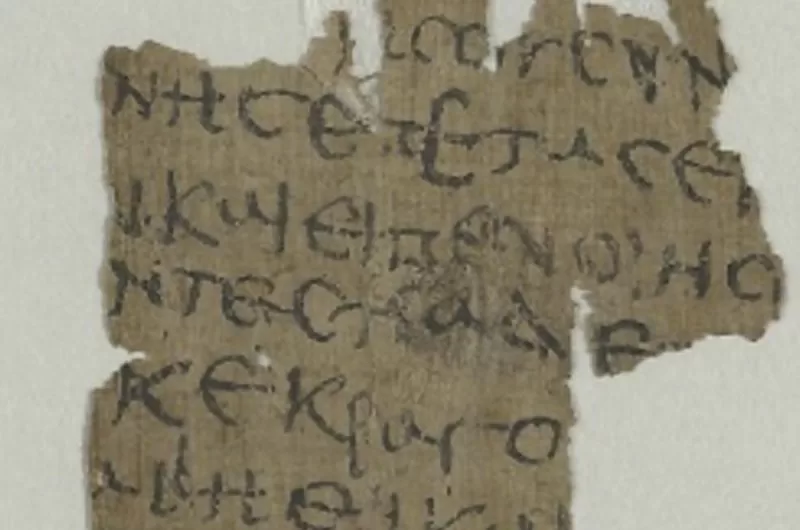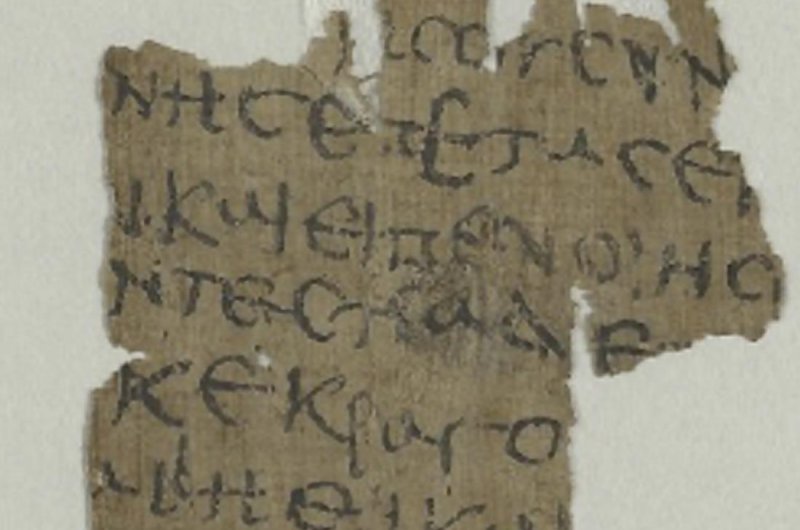A papyrus fragment, dating from the 4th to 5th century, was recently deciphered after being stored for decades in a university library in Hamburg, Germany. It has been identified by researchers as the earliest surviving writings about Jesus Christ’s childhood. Photo courtesy of Staats- und Universitätsbibliothek Hamburg/Public Domain Mark 1.0
June 12 (UPI) — A recently deciphered manuscript, dating back to the 4th or 5th century and stored in a university library in Hamburg, Germany, has been identified by researchers as the earliest surviving account of Jesus Christ‘s childhood.
“Our findings on this late antique Greek copy of the work confirm the current assessment that the ‘Infancy Gospel of Thomas’ was originally written in Greek,” said papyrologist Gabriel Nocchi Macedo from the University of Liège in Belgium.
The papyrus fragment, dating back more than 1,600 years, had gone unnoticed for decades at the Hamburg Carl von Ossietzky State and University Library, until Macedo and Dr. Lajos Berkes from the Institute for Christianity and Antiquity at Humboldt-Universität zu Berlin identified its true origin.
The small fragment, which measures just over 4 inches by 2 inches, contains thirteen lines of Greek letters from late antique Egypt. The content was originally thought to be part of “an everyday document, such as a private letter or a shopping list, because the handwriting is so clumsy,” said Berkes. “Then, by comparing it with numerous other digitized papyri, we deciphered it letter by letter and quickly realized it could not be an everyday document.”
The researchers believe the copy of the Gospel was created as a writing exercise — given the clumsy handwriting and irregular lines — in a school or monastery, which would make it a much earlier surviving copy of the gospel than the ‘Infancy Gospel of Thomas’ manuscript from the 11th century.
“The fragment is of extraordinary interest for research,” said Berkes. “On the one hand, because we were able to date it to the 4th to 5th century, making it the earliest known copy. On the other hand, because we were able to gain new insights into the transmission of the text.”
While the words in the document are not from the Bible, they describe a “miracle,” according to the Gospel of Thomas, that Jesus performed as a 5-year-old child as he moulded soft clay from a river into sparrows and then brought them to life.


